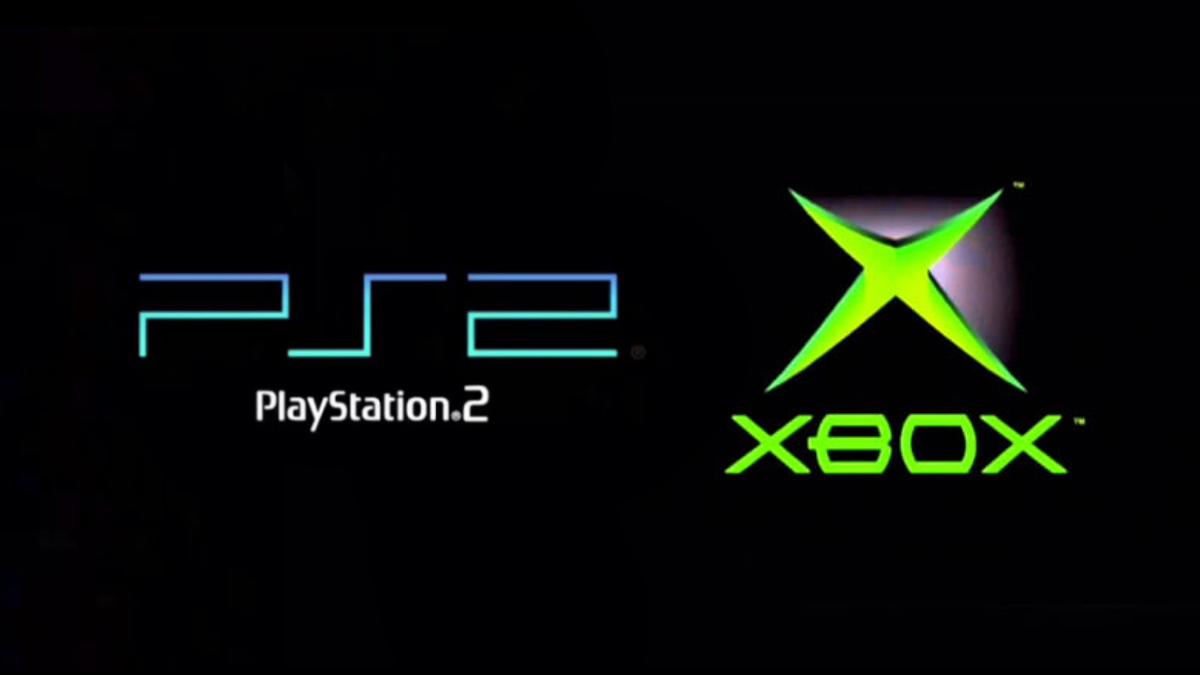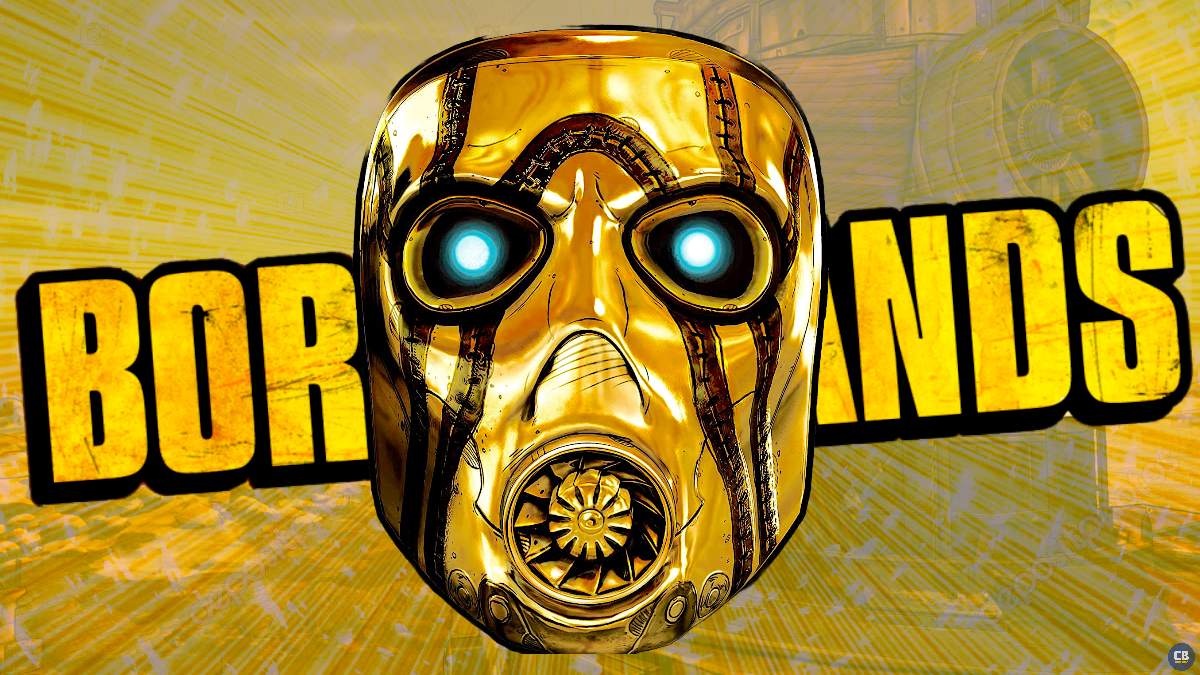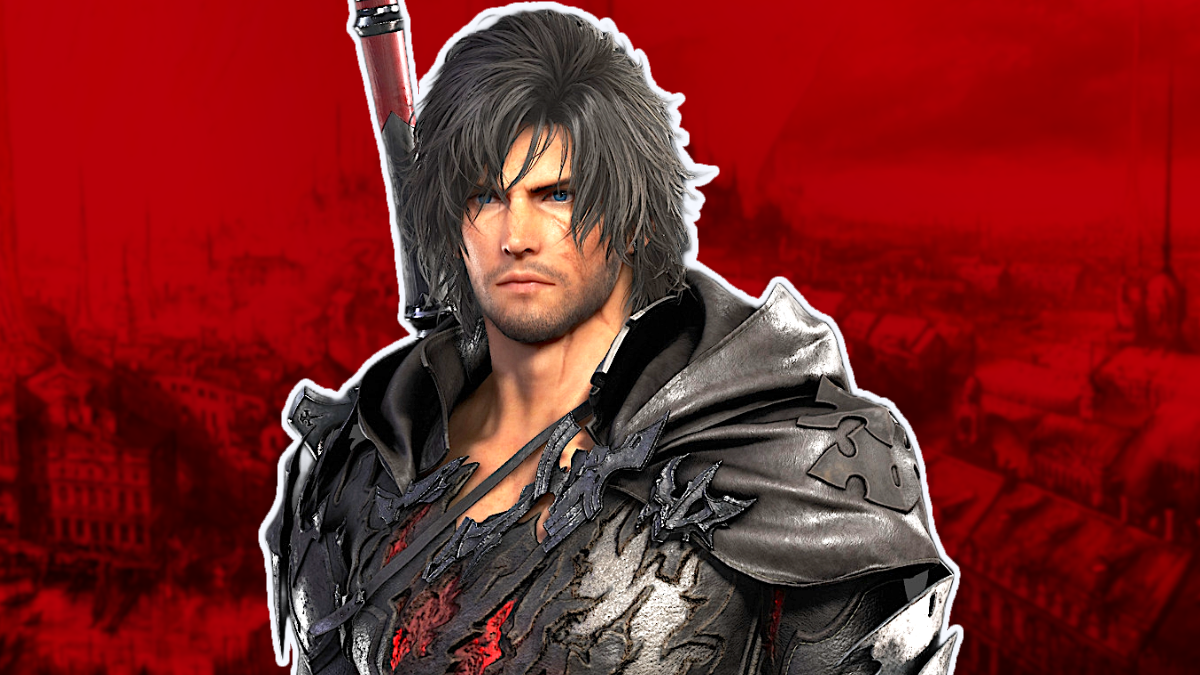The Walking Dead RPG Launches on Kickstarter
The Walking Dead is coming to the tabletop. Free League Publishing has launched a Kickstarter to fund production of The Walking Dead Universe Roleplaying Game, a new tabletop RPG that allows players to tell their own stories within the post-apocalyptic landscape of the universe of The Walking Dead. The new game uses Free League's Year Zero game engine, but with a few unique twists designed to bring out the survival themes of The Walking Dead onto the tabletop. After just two days, the Kickstarter has raised over $400,000, with backers able to get a digital copy of the core rulebook with a $30 pledge and a physical copy with a $50 pledge.
To get an idea of how The Walking Dead Universe Roleplaying Game was designed, we spoke with Mattias Johnsson Haake, a Game Designer of The Walking Dead Universe Roleplaying Game and co-owner of Free League Publishing, and Genuine Entertainment's Joe LeFavi, Game Producer and Brand Manager, about their new game.
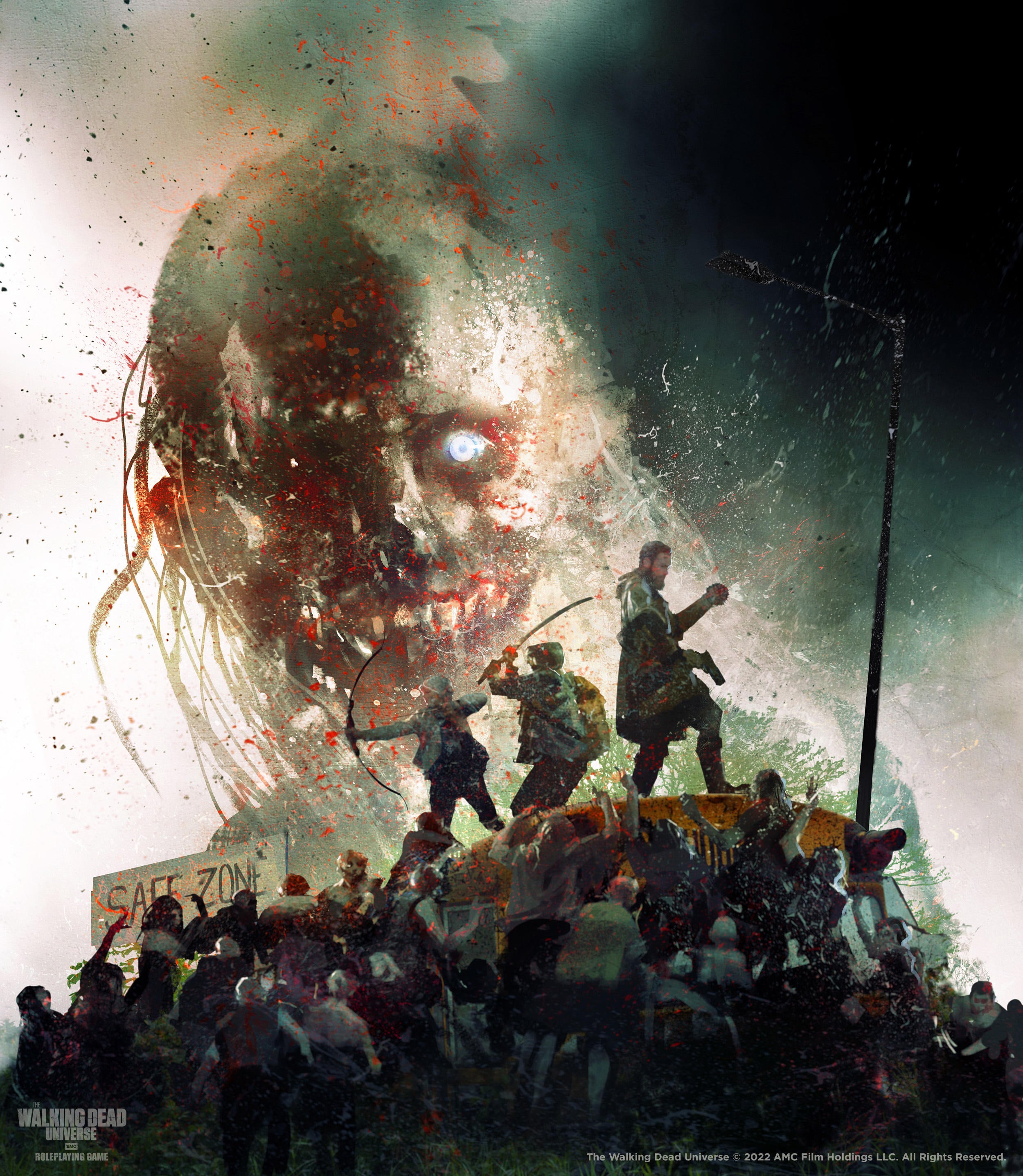
ComicBook.com: What are the challenges of adapting such a large IP to the tabletop RPG format?
Joe LeFavi: Oh, there are immeasurably higher stakes on a licensed RPG. Doesn't matter how much you know and love an IP, somebody out there knows and loves it more. But to be honest, that's one of the things I love about it. Being a tiny part of something that BIG. That means so much to so many people, myself included. It's a relentless, humbling obligation to do your best work, because if you don't, the super fans will call you out on it.
It's a puzzle to reverse engineer an IP and find ways to make it work – not just mechanically as a game, but thematically in a way where it feels authentic to core fans, accessible to new fans, and respectful of the IP's original creators and the choices they made. And above it all, you can't just rely on the strength of the IP to make a successful game. If you don't give the game a real reason to exist far beyond what the IP brings to the table (literally and figuratively), it'll never last.
Yet if you can, and you prove to fans new and old that you're making an authentic, meaningful contribution to the IP and the tabletop community… it's often the most rewarding experience at the end of the day. You can walk the floors at Gen Con and literally see the IP and fandom grow.
Mattias Johnsson Haake: I think Joe has covered most angles. What I can add from a game design perspective, is that as long as you work on something that you are truly passionate about, and that has the components needed to design a fun, engaging, interesting game, the work is much the same. In this case, all the requirements are definitely there – the passion as well as a setting steeped in drama, faction play, moral ambiguity, horror, and action. The Walking Dead Universe RPG was just waiting to be made.
It seems like we're entering a new age of licensed TTRPGs. Are there benefits to working within an established world as opposed to creating a new one and cultivating a TTRPG around that?
LeFavi: If you pick the right IP, a tabletop RPG should fit like a glove. So many of the hardest world-building questions should have already been answered. So many challenging situations, character arcs, and themes should've already been explored. You spend enough time in that world, the ethics, physics, even the literal mechanics of that world will be stress tested to their limits. So you already know how this established world should work as a TTRPG. The challenge is just making it authentically and consistently work that way when you let somebody else explore that world on their own terms.
After all, you can't ask or expect players to watch 200+ hours of TV before sitting down at a game table. You also can't expect everybody to be as respectful of the IP's natural limits or the choices it's made over the years. So when those first dice roll, you can't expect everyone to neatly color inside the lines or fully appreciate the depth and breadth of what this game could and should offer.
It's definitely not easy, but as Nils (our lead designer) once said, if we make the right version of this RPG, even if the IP never existed, the events of the TV series could've naturally resulted from just a few people sitting around a table rolling some dice. That's the hope and goal, anyway.
Haake: As a designer who has mostly worked with original brands, such as Symbaroum and Coriolis, I can absolutely say that working on an established property is different. In general, I very much enjoy creating game settings from scratch, designed to enable the telling of stories that I currently want to explore. Working on a licensed property is something else, and I would not even consider doing that if it wasn't a property I truly love – that tells stories that I feel are important, and exciting; stories that speak to me.
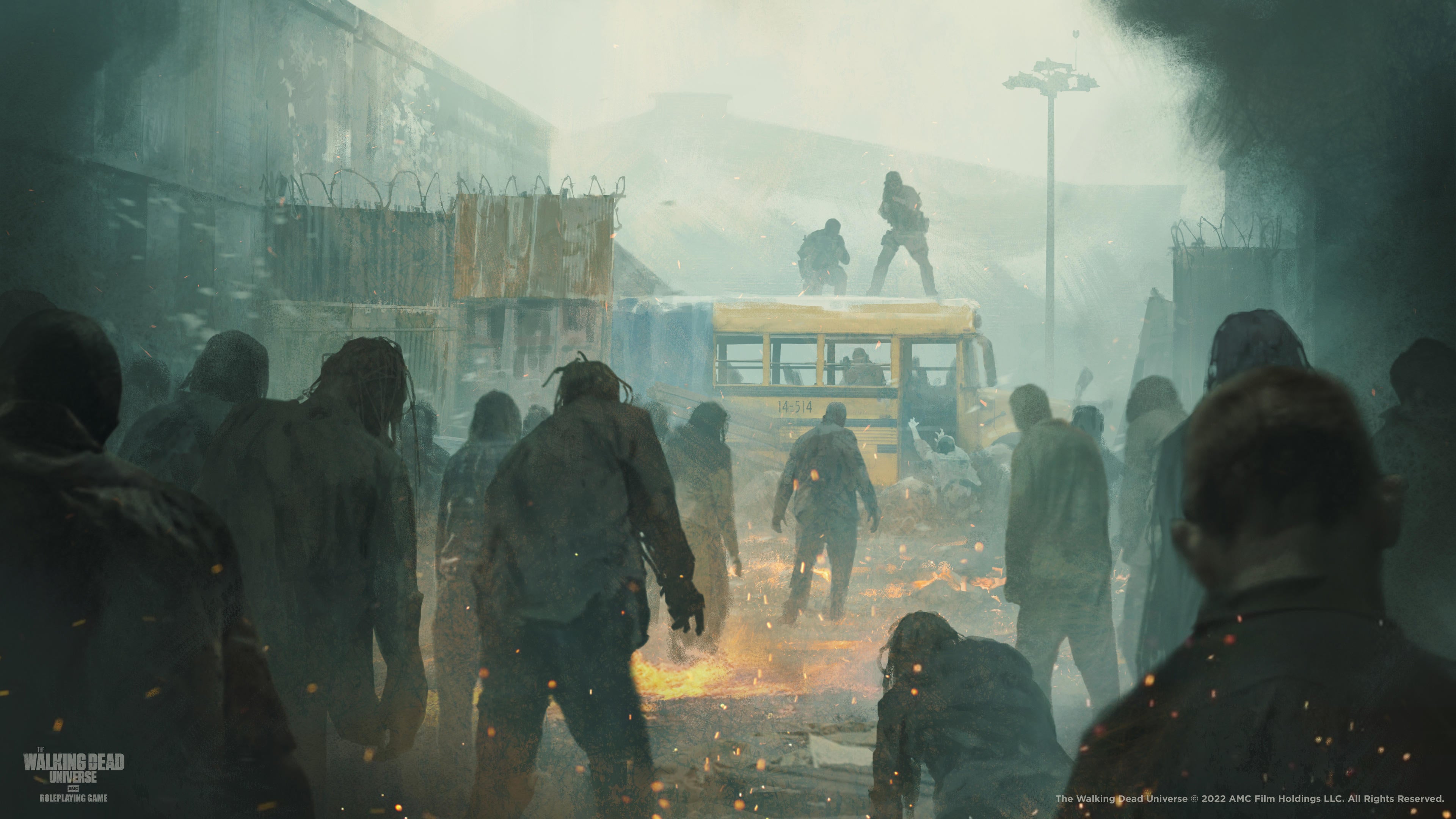
How does The Walking Dead RPG differ from other zombie RPGs?
LeFavi: Truth be told, we've never aspired to be just another zombie RPG. I enjoy them, but if you took zombies out of most zombie RPGs, you'd have nothing really compelling to do. You only exist to resist. With the TWDU RPG, walkers are just one environmental threat among many, no more controllable or preventable than any other force of nature. But if you took them out of the picture, the world itself is still a rich, compelling, and challenging sandbox worth exploring. If anything, I think TWDU shares a lot more in common with Alien or post-apocalyptic survival RPGs, where you're dropped into a hostile, uncompromising environment and it's not a foregone conclusion that you'll survive. Where the drama is more rooted in IF and HOW you survive, and what those horrific events and sacrifices bring out in you and those around you. Speaking of which, I will say that we've taken our stress mechanics to a new level.
In previous Year Zero RPGs, the mechanics only really impacted you and those around you. The world could change you, but you could never really change it. Wherever you were, that place would've been equally safe or unsafe for anybody unlucky enough to be there. In TWDU, you're NEVER safe. And the world is always changing. There is an ever-escalating threat level for the world itself, and the more you and those around you succumb to the stress and make poor choices, the more the world begins to turn against you. So in a way, the state of the environment reflects the emotional state of your PCs and NPCs in a way that I haven't seen before in a Year Zero game. Every time somebody loses their cool or charges recklessly into the fray, the stakes just feel so much higher. It's really fascinating to experience as a player and a GM, and I think fans are really going to enjoy this concept in particular.
Haake: Well put, Joe. Honestly, I would not think of this game as a zombie RPG. The TWDU RPG is first and foremost about interpersonal drama and faction play, where the main antagonists are other humans, not the undead.
One key to The Walking Dead is its constant use of unexpected deaths to keep tension at a high. How do you balance that with the TTRPG format, in which players typically control only one character for the bulk of their campaign? Are players expected to have multiple characters waiting in the wings?
LeFavi: For the TWDU RPG, there are two game modes – campaign and survival. And in both modes, death isn't a consequence. And it's not the end. Death is just a part of life and a central part of the experience and what makes the game so unforgettable and unique. For Campaign mode, the core motivation is to explore and experience all this world has to offer. You're going to build your own safe haven, then build another. Grow your own found family, then inevitably make choices and sacrifices that risk losing the people, places, and things you hold dear. Even your own PC. The campaign experience is rooted in that ongoing human drama and finding a new reason each day to keep fighting, and overcome whatever comes next.
For Survival mode, there is no next. There is only RIGHT NOW. More like our cinematic mode for Alien, Survival mode is more intended as a collaborative one-shot experience where your group's only motivation is to SURVIVE. At any and all costs. Not everybody is going to make it, so there'll be enough NPCs around where players can hop into whoever is nearby and jump right back into the action. The point isn't for your PC to live. The point is for anybody to make it to the end. And if nobody does, you just try again.
Haake: The fact that death is a real risk also encourages a playstyle where the players (should) think twice about placing their PCs in dangerous situations. Surviving the world of the dead is really not about being swift with your gun or skilled with the baseball bat – it is primarily about making the right choices and avoiding situations that can cost you your life. Seek to negotiate, to compromise. Consider fleeing or hiding before you reach for your weapons. For the PCs and NPCs of TWDU, the threats are real and never trivial.
As for the last question, the PCs are always accompanied by a number of NPC survivors. If your PC dies, you can choose to convert one of those NPCs into a PC, or you can create a new one from scratch – with the risk that they will have a hard time winning the trust of the other PCs.
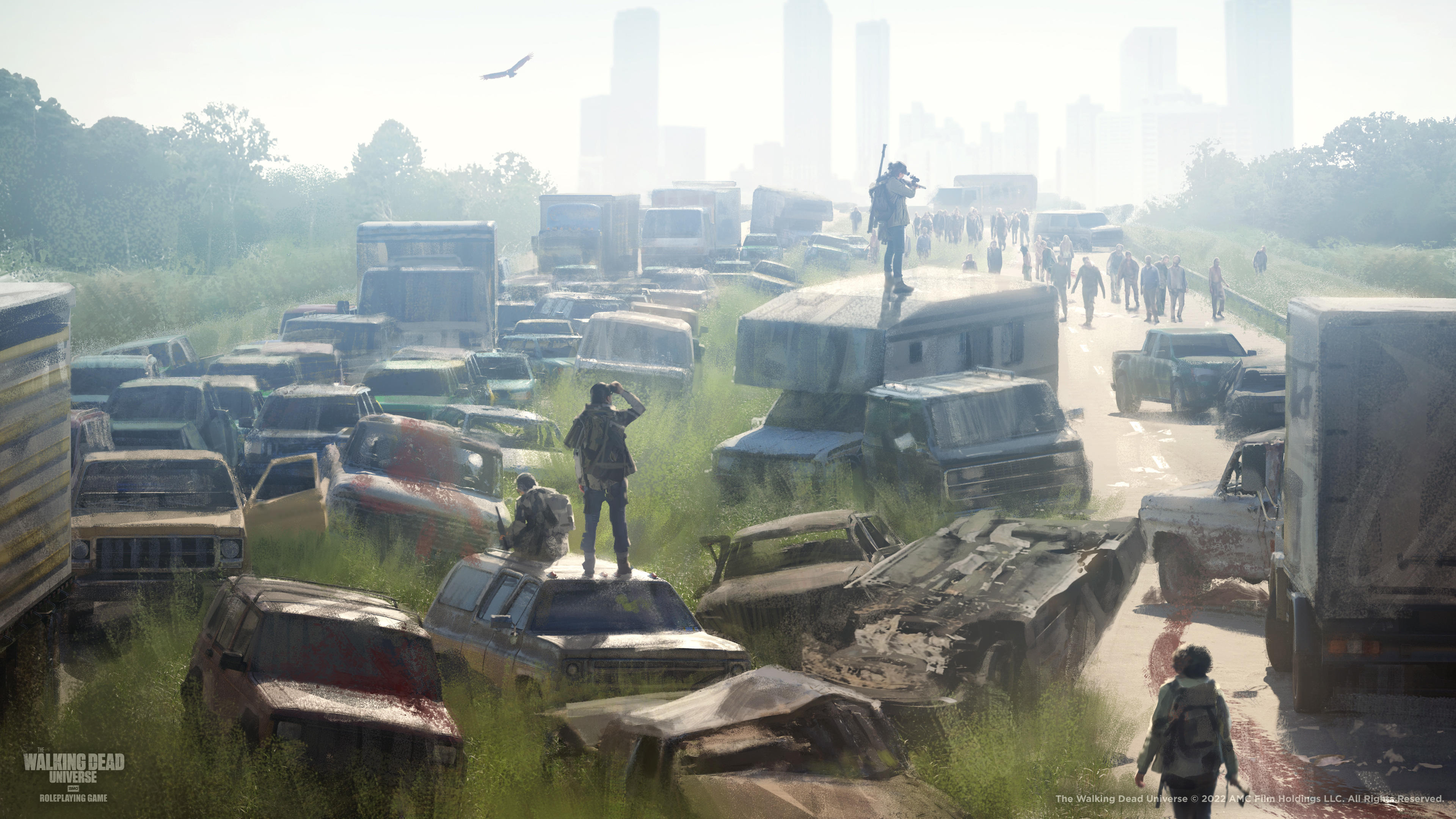
In terms of a specific format, how does The Walking Dead RPG utilize the Year Zero Engine? Are there any deviations from the core rules or new mechanics?
Haake: With Nils Hintze as the lead game designer, you will recognize many elements from the Tales From the Loop RPG and the Vaesen RPG – it is a dice pool system, where the number of dice you roll is determined by adding your attribute level to your skill level – rolling a six means a success. Also, I would say it is one of the lighter versions of the YZE; the emerging story is at least as important as dice rolls and stats.
One feature that has been added to capture the survival drama of the gameplay is the stress mechanic. Joe has already talked about this above, but I would argue that it is the perfect bridge between the rules and setting of this game – a mechanic that anchors the setting in the rule set.
How are the existing characters of The Walking Dead – Rick, Michonne, Negan, for instance – integrated into the TTRPG?
LeFavi: We're providing pre-generated character sheets for select main characters from the TV franchise, but mostly as a reference in building your own characters. If you want to build a tracker like Daryl, but your PC won't be as experienced as Daryl, it's helpful to see how we mechanically built Daryl, if only to comparatively build your PC's stats in a way that feels authentic to the IP. Beyond that, while there's nothing stopping players from integrating existing characters or locations from the TV shows into their home games, we encourage players to tell their own stories and (at most) only cross paths with select characters or existing locations/events on their own terms.
You can check out the full Kickstarter for The Walking Dead Roleplaying Game here.
